
Speakers
Speakers
-

Eriko Takano
Manchester Institute of Biotechnology
Eriko Takano is Professor of Synthetic Biology in the Manchester Institute of Biotechnology at the University of Manchester.
Eriko Takano
Manchester Institute of Biotechnology
Bio
Eriko Takano is Professor of Synthetic Biology in the Manchester Institute of Biotechnology at the University of Manchester. She is director for the EPSRC/BBSRC-funded Manchester Synthetic Biology Research Centre, SYNBIOCHEM, and a visiting Professor at the Graduate School of Engineering, Osaka University, Japan.
Eriko is internationally recognized as a pioneer in the synthetic biology for antibiotic production and has been working in both industrial and academic research. Eriko’s research interests cover many facets of microbial synthetic biology. She is serving as an expert advisor for national and international bodies, including the OECD, the DSIT Engineering Biology Steering Group, BBSRC Council and various Japanese funding bodies (NEDO, JST, JSPS). She has served as an expert advisor for the European Commission Scientific Committee on Emerging and Newly Identified Health Risks of Synthetic Biology, where she contributed to a series of three official Opinions with major impact on the development of the field.
-
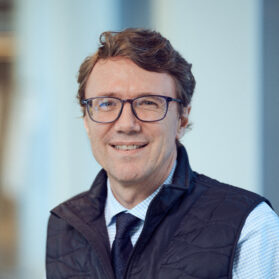
Jens Nielsen
BioInnovation Institute
Jens is the CEO of the BioInnovation Institute. Honorable dr.med. from University of Gothenburg. Fulbright visiting professor at MIT in 1995-1996. Professor at DTU in 1998.
Jens Nielsen
BioInnovation Institute
Bio
MSc in Chemical Engineering, PhD (1989) in Biochemical Engineering and dr.techn. (1995) from the Danish Technical University (DTU). Honorable dr.med. from University of Gothenburg. Fulbright visiting professor at MIT in 1995-1996. Professor at DTU in 1998. In 2008 he was recruited as Professor to Chalmers University of Technology, Sweden. In 2015 he was founding Head of the Department of Life Sciences, which now encompass more than 250 people. Jens Nielsen was also a co-founder of the Novo Nordisk Foundation Center for Biosustainability that now has more than 300 people affiliated, for which he served as CSO 2013-2018. From 2019 CEO of the BioInnovation Institute in Denmark, which is a new institute financed by USD500M that fosters translational research and support new spin-out companies in life sciences. He has trained more than 280 scientists in his research group and published >850 publications that have been cited more than 126,000 times (current H-factor 162). Inventor of >50 patents and founder of six biotech companies. Has received numerous awards, including the ENI Award, the Eric and Sheila Samson Prime Minister Prize for Transportation Fuels, the Novozymes Prize, and the Gold Medal from the Royal Swedish Academy of Engineering Sciences. Member of 13 academies, including NAS, NAE, NAM, Chinese Academy of Engineering, EMBO and Royal Swedish Academy of Science.
-
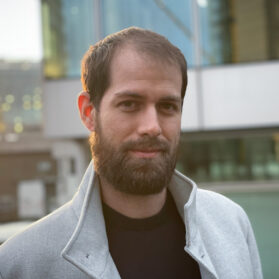
Rodrigo Ledesma Amaro
UKRI Engineering Biology Mission Hub on Microbial Food
Rodrigo is the director of the UKRI Engineering Biology Mission Hub on Microbial Food.
Rodrigo Ledesma Amaro
UKRI Engineering Biology Mission Hub on Microbial Food
Bio
Rodrigo Ledesma-Amaro is leading a research group at the interface of synthetic biology and metabolic engineering at Imperial College London. He is interested in using microbial cells to produce sustainable foods, fuels, pharmaceuticals and materials. His research covers the generation of cutting-edge synthetic biology tools such as novel CRISPR tools, the production of compounds of interest such as foods, fuels, chemicals in engineered microorganisms and the exploration of complex microbial communities and their role in improved bioprocesses. Rodrigo is the director of the UKRI Engineering Biology Mission Hub on Microbial Food.
-
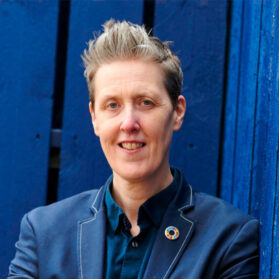
Susan Rosser
UK Centre for Mammalian Synthetic Biology
Susan is the Director of the UK Centre for Mammalian Synthetic Biology and Co-director of the Edinburgh Genome Foundry for synthetic DNA synthesis and assembly.
Susan Rosser
UK Centre for Mammalian Synthetic Biology
Bio
Susan is Professor of Synthetic Biology and Royal Academy of Engineering (RAEng) Chair in Emerging Technologies at the University of Edinburgh. She is Director of the UK Centre for Mammalian Synthetic Biology and Co-director of the Edinburgh Genome Foundry for synthetic DNA synthesis and assembly. She also held a prestigious Engineering and Physical Sciences Research Council (EPSRC) Leadership Fellowship in Synthetic Biology. In 2022, her work was recognised by the national academies of both Scotland and Wales, being elected as a Fellow of the Royal Society of Edinburgh (RSE) and Fellow of the Learned Society of Wales. She served as a member of the Scottish Science Advisory Council, Scotland’s highest level science advisory body, providing independent advice and recommendations on science strategy, policy and priorities to the Scottish Government. Her research focuses on using synthetic biology approaches for developing and controlling genetic circuits for applications in cell and gene therapies as well as metabolic engineering. She is co-founder of two early-stage start-ups using a combination of AI and engineering biology for new gene therapies and enzyme replacement therapies for rare diseases.
-
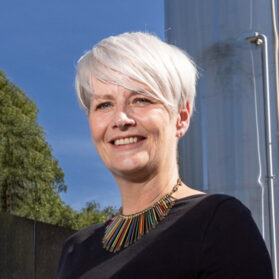
Johann Partridge
MiAlgae Ltd
Johann Partridge PhD, is the Operations Director at MiAlgae Ltd
Johann Partridge
MiAlgae Ltd
Bio
Jo has over 30-years’ experience across the biotech and life sciences sectors. Having completed her PhD in Biotechnology at the University of Strathclyde, she held several academic positions which ultimately led to the successful spin-out of XstalBio, an SME focused on providing novel solutions to enable drug and vaccine delivery.
Jo subsequently took on the position of Operations Director at the IBioIC where she led the industry-focused project programme as well as the bioprocess scale-up facilities as part of BioPilotsUK. Here she had the opportunity to indulge her passion for translation of innovation and collaborate with some of the UK’s most talented academics and entrepreneurs. She now works as Operations Director at MiAlgae, a Scottish SME built with circular economy at the core. The company aims to eliminate reliance on wild-caught fish as the primary source of omega-3 by producing a sustainable microalgal alternative from food and drink sector coproducts. -
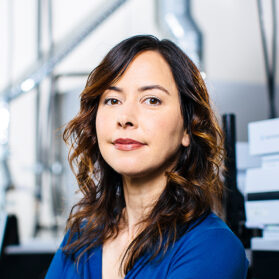
Christina Smolke
Antheia, Inc
Christina Smolke is CEO and co-founder of Antheia, Inc. and Adjunct Professor of Bioengineering at Stanford University
Christina Smolke
Antheia, Inc
Bio
Dr. Smolke, a pioneer in the fields of synthetic biology and metabolic engineering, joined Caltech’s faculty in 2003 as an Assistant Professor of Chemical Engineering and joined Stanford’s faculty in 2009, where she was Professor of Bioengineering. Dr. Smolke’s early work pioneered the design and application of a broad class of RNA molecules, RNA switches, that detect chemical signals and regulate targeted protein activities, providing programmable platforms for building biological sensors and control systems. At Stanford, her team led the breakthrough research to engineer baker’s yeast to produce some of the most complex and valuable plant-based essential medicines known to humankind. At Antheia, her vision and leadership has enabled a synthetic biology platform that dramatically expands the diversity and complexity of molecules that can be reconstructed, enabling new possibilities for drug discovery as well as efficient, sustainable, transparent, on-demand drug manufacturing at scale.
Dr. Smolke’s impact in advancing the frontiers of biotechnology has been recognized with numerous awards, including Chan Zuckerberg Biohub Investigator, Nature’s 10, AIMBE College of Fellows, NIH Director’s Pioneer Award, NSF Career Award, Novozymes Award for Excellence in Biochemical Engineering, WTN Award in Biotechnology, and TR35 Award.